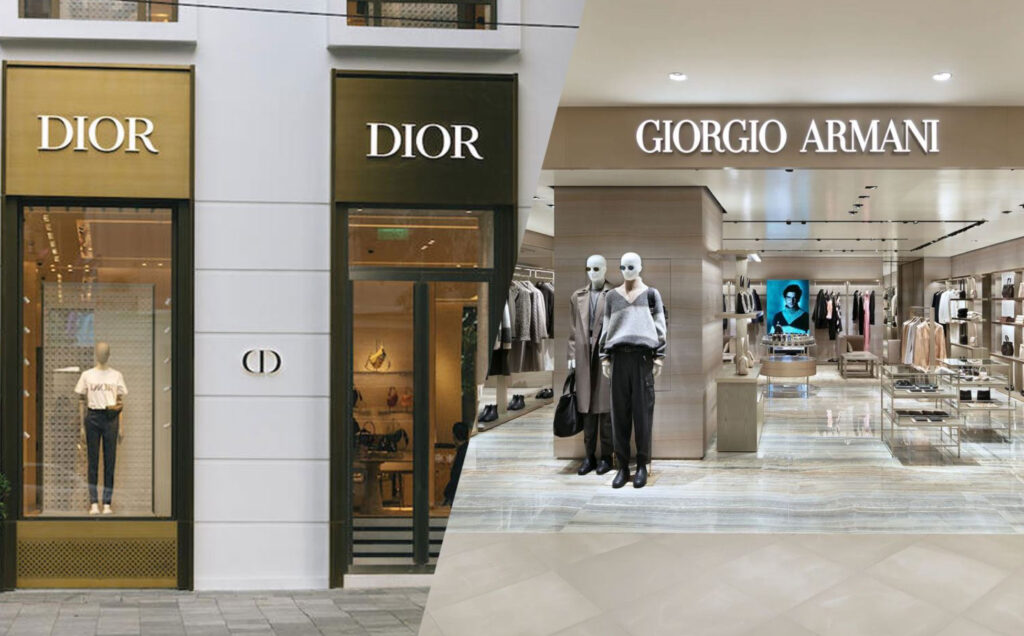Italian police raids found Dior was using exploitative suppliers to produce luxury bags.
Judges placed Dior and Armani units under judicial administration for one year
Italian Luxury Giants Exposed for Exploiting Workers to Produce High-End Handbags
The Italian police raided some of LVMH’s Dior suppliers that make luxury handbags.
Italian prosecutors found Dior paid $57 to produce bags retailing for $2,780.
In a shocking revelation, two prominent Italian luxury brands have been accused of paying a meager amount to produce handbags that are later sold for thousands of dollars, according to documents from an extensive investigation into subcontractors.
Italian prosecutors in Milan have been scrutinizing Dior, a subsidiary of the French luxury conglomerate LVMH, for its use of third-party suppliers. The investigation revealed that these companies exploited workers to manufacture handbags for a fraction of their retail price.
Documents examined by authorities and reported by Reuters last month indicated that Dior paid a supplier a mere $57 to produce handbags that were later sold in stores for around $2,780. These costs exclude raw materials such as leather.
The prosecution noted that Dior’s relevant unit failed to implement “appropriate measures to check the actual working conditions or the technical capabilities of the contracting companies,” according to Reuters.
Further investigation in March and April uncovered disturbing evidence of workers sleeping in production facilities to meet relentless demand. Electricity consumption data confirmed that work continued during nights and holidays, as reported by Reuters.
The subcontractors involved were reportedly Chinese-owned firms, with most workers hailing from China. Prosecutors discovered that two workers were living in the country illegally, and another seven lacked the required documentation to work legally. Additionally, safety devices on gluing and brushing machines were allegedly removed to increase the speed of production.
Court documents showed that Dior submitted a memo outlining its supply-chain improvements, The Wall Street Journal reported on Tuesday.
The investigation also extended to Giorgio Armani, another luxury giant. The company faced similar accusations of failing to properly oversee its suppliers. According to documents reviewed by Reuters, Armani paid contractors $99 per bag for products that retailed for over $1,900.
A spokesperson for Armani Group told Business Insider that the company is cooperating with authorities. “The company has always had control and prevention measures in place to minimize the risk of abuses in the supply chain,” the statement said.
In response to the findings, judges in Milan have ordered units of both Dior and Armani to be placed under judicial administration for one year, allowing them to operate under strict oversight.
These revelations have sparked outrage and disbelief, particularly when considering the exorbitant retail prices of these luxury handbags. The real cost of a bag, supposedly crafted with care and luxury in France, contrasts starkly with the inhumane conditions and exploitation revealed by this investigation. It is appalling that such practices are prevalent in an industry that prides itself on quality and exclusivity.
Prosecutors emphasized that these violations are not isolated incidents but rather a widespread and entrenched practice within the luxury industry. “It’s not something sporadic that concerns single production lots, but a generalized and consolidated manufacturing method,” court documents noted.
Fabio Roia, president of the Milan Court, underscored the gravity of the situation. “The main problem is obviously people being mistreated: applying labor laws, so health and safety, hours, pay,” Roia told Reuters. “But there is also another huge problem: the unfair competition that pushes law-abiding firms off the market.”
The luxury industry, with its glamorous facade, must now confront the stark reality of its supply chains. Last year, LVMH reported working with 2,062 suppliers and subcontractors and conducting 1,725 audits, according to its environmental and social responsibility report. However, these recent findings cast a long shadow over the company’s practices.
As the world’s third richest person, LVMH CEO Bernard Arnault, along with his daughter Delphine Arnault, CEO of Dior, now faces growing scrutiny. The revelations have raised pressing questions about the true cost of luxury and the ethical responsibilities of those at the helm of these global empires.



